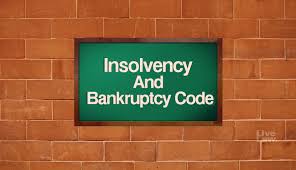Latest News
Operational Creditors: IBC

The Insolvency and Bankruptcy Code, 2016 (IBC) recognizes two kinds creditors namely : 1)Financial Creditors,who under the IBC are those to whom a financial debt is owed conferred upon the Debtors by way of cheques, debentures, secured loan etc. and the 2)Operational Creditors are those to whom a debt is owed in lieu of goods or services.
The report by Banking Law Reforms Committee explicates the role of Financial Creditors and Operational Creditors under the IBC. While Financial Creditors and Operational Creditors can initiate the Corporate Insolvency Resolution Process (CIRP) in case of non-payment of debt, the Committee of Creditors consists of only Financial creditors unless an Operational Creditors debt aggregates are more than 10% of the total debt(Section 24, Insolvency and Bankruptcy Code 2016)but without any voting rights. Here it is imperative to understand the crucial role of COC in the CIRP. The COC after analysing the growth prospects and revival probabilities of the Corporate Debtor decides its fate of survival by formulation of a Resolution Plan or Liquidation.
The Banking Law Reform Committee justifies the discrimination in their report because they deduced that Operational Creditors due to their limited stake would not be interested in the revival or growth of the company, they would rather aim at liquidating it for speedy repayment.
The Operational Creditors may file an appeal against the valuation of claims by the liquidator if he is not satisfied but within 14 days to the adjudicating authority. They can appeal the order of the COC if it is not satisfied in the NCLT within 30 days on grounds stated in Section 61(3) a few of them being,
- (a) their debt has not been included in the resolution plan;
- (b) irregularity in exercise of powers of Resolution Professional;
- (c) non-compliance to procedures;
- (d) CIRP costs not provided for in the resolution plan.
There was a further indifference towards the repayment of the debt of the operational Creditors done by way of waterfall mechanism(Section 53, Insolvency and Bankruptcy Code 2016). In this method, the repayment is done in priority order of Secured financial creditors, Unsecured financial creditors and only then to the Operational Creditors. This method was particularly pointed out in the landmark judgement of Essar Steel Insolvency Case(CIVIL APPEAL NO. 8766-67 OF 2019) called out for being radically discriminatory and against the principles of equality. It also observed that the COC has the authority to classify creditors as financial/operational. But this fault was categorized as a matter of minimum payment to operational creditors than priority payment.
Under the 4thAmendment to the IBC Regulations 2018 no minimum amount has been prescribed for repayment to operational creditors. However, sub-section 30 (2)(b) of the Insolvency and Bankruptcy Code, 2016 requires the resolution professional to ensure that the resolution plan takes into account for the payment of debts of operational creditors at par with the amount paid to the operational creditors in the event of a liquidation of the corporate debtor under Section 53. Therefore, no concrete provision has been provided to maintain the interests of the Operational Creditors but to this extent their rights remain protected under the Code. Nevertheless, the amounts to be paid to them under the resolution plan is still vulnerable at the discretion of the COC.
Justice Nariman in the case of Essar Steel also observed that “When COC only has financial creditors, they can give nothing to operational creditor. In a winding-up proceeding, can an operational creditor be asked to get nothing?,” the judges questioned Senior Counsel P Chidambaram , appearing for one of the banks, submitted that "no prudent businessman, who wants to acquire a going concern and run it in future, would present a resolution plan that offers nothing to the operational creditors."
This position remains unchanged since India’s ranking in Ease of doing Business Index and Resolving Insolvency parameter have profoundly improved. Also with the ongoing circumstances of Covid-19 pandemic, while the country’s rampantly increasing transmission sufferings are high and deadly along with the hard hit on the economy, the focus will remain upon maintaining these ranks, starting the IBC processes with the opening of the courts to ensure minimum defaults and resolve the ongoing.



































































































